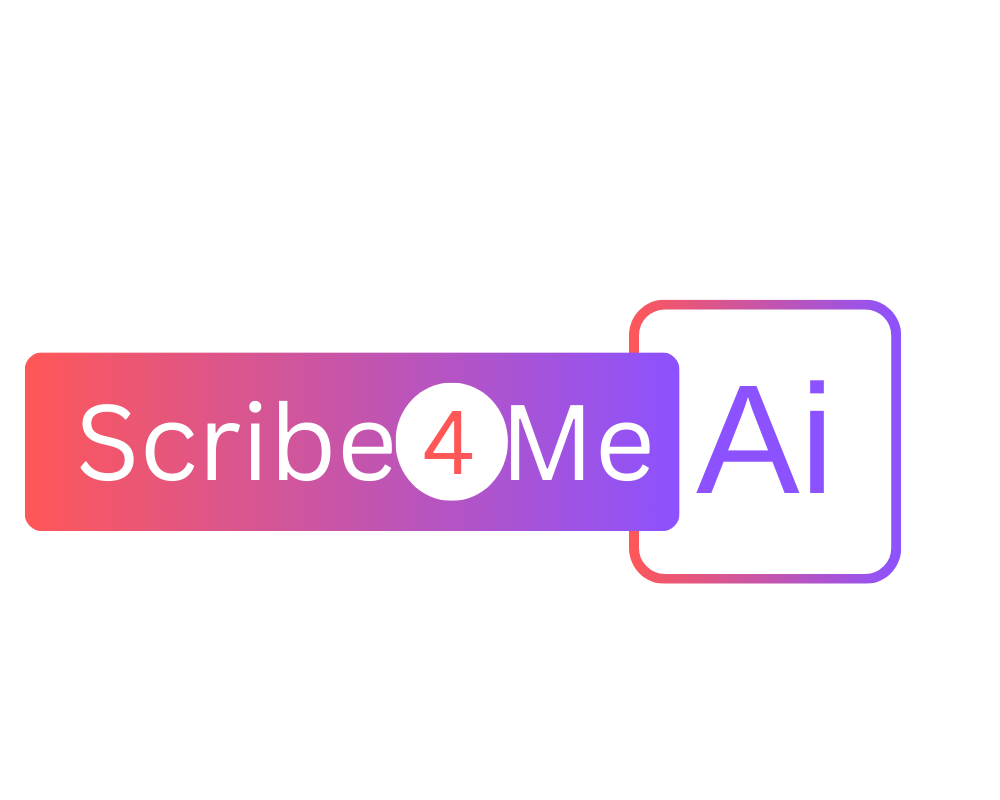

A Patient's Guide to AI-Powered Scribe Visit Summaries
As AI-powered scribes redesign the way healthcare documentation is handled, understanding their role is essential for patients. So, next time you visit your doctor, consider asking if AI is part of your care process, especially in note-taking. AI scribes are increasingly being used in clinics to record and summarize physician-patient conversations, freeing doctors from the tedious task of manually taking notes themselves. This shift in documentation brings new benefits, questions, and considerations for patients. In this blog post we will discuss what you should know and discuss with your doctor to stay informed and empowered.
Why Ask About AI Scribe at Your Doctor’s Office?
If you’re curious whether an AI-powered scribe is part of your visit, just ask. Your doctor will appreciate your interest, and knowing the role of AI in your care helps you better understand how information about your health is handled. Medical associations have established guidelines for doctors interested in using AI scribes to handle patient documentation, allowing them to spend less time on note-taking. In fact, a recent trial showed that AI scribes can reduce the time doctors spend on paperwork by 70-90%, saving them an average of three to four hours each week. This means your doctor has more time to focus directly on your care, possibly improving visit quality. However, for AI generated notes to be effective, doctors should review and verify them to ensure they’re complete and accurate.
How AI Scribe Can Improve Your Visit Experience
When a doctor uses an AI-powered scribe, they spend less time typing and more time engaging with you during your visit. Traditionally, doctors juggle the need to look at their computer screens to type notes with the need to maintain eye contact with patients. Dr. Muhammad Mamdani, an expert in data science and advanced analytics highlights how AI can improve this. By letting the AI scribe handle the documentation, doctors can listen and respond more fully to what you’re saying. This shift can help doctors give you their full attention, potentially leading to more meaningful conversations about your health concerns.
Is My Data Safe?
Data privacy is a top concern when it comes to AI in healthcare. As with any new technology, it’s essential to know how your data is being handled, stored, and protected. Cybersecurity is one of the most important factors to consider when integrating an AI scribe into a practice. Here are some critical questions to ask your doctor:
Where is my data stored? Some practices store data onsite, while others use offsite or cloud-based storage. Understanding where your information goes can give you peace of mind.
Is my data encrypted? Encryption is a security measure that ensures your information is safe when it’s in transit and at rest. Encryption ensures that only authorized people can access it.
In short, doctors must make sure that the AI scribe they use (or the AI scribing company they partner with) has the necessary safeguards in place to comply with HIPAA.
Who can access my data? Within any practice, it’s crucial to know who has permission to see your information and whether there is a record-keeping system that tracks access to your file.
What Am I Agreeing To?
The doctor must obtain your consent before using an AI-powered scribe to record your visit. This is a key part of respecting patient privacy and choice. But what exactly are you consenting to?
When it comes to an AI scribe it’s important to clarify how your information will be used. For example:
- Are you agreeing for your data to be used strictly for diagnostics and related purposes?
- Is your data being used for research?
- Will your data help train the AI to improve its accuracy?
Some AI models are “closed,” meaning they only document information and do not use it to learn. Others are “open,” meaning they use the data to improve their performance for future cases. It’s worth asking these questions to understand exactly what you’re consenting to.
How Accurate Are AI Visit Summaries?
Even though AI scribes save time, doctors should always review AI-generated summaries for accuracy. Dr. Mamdani notes that these AI tools work best with a “human in the loop,” meaning doctors are still responsible for reviewing and perfecting the transcribed notes to ensure they reflect the conversation accurately. Accuracy can be a particular issue with patients who have heavy accents and regional dialects. Hence, it is recommended that doctors choose an AI tool with strong language support capabilities and known for accuracy with diverse accents. If you’re concerned about this, talk to your doctor to make sure they’re aware of any potential limitations and are committed to reviewing the summaries for accuracy.
Conclusion
With AI scribes being increasingly used for clinical documentation, it’s essential for patients to stay informed. Asking questions, understanding your data’s safety, ensuring clear consent, verifying data accuracy, and knowing who can access your data, can help you feel more comfortable with AI-assisted visits. AI scribes promise to support better, more attentive care, but it’s up to both patients and doctors to make sure these tools are being used responsibly. So, when it comes to your health data, never hesitate to ask questions—it's your right as a patient to know and to feel assured that your information is handled with care.
Are you a physician looking for an AI-powered scribe to automate your documentation process? Scribe4Me AI is designed to document patient visits efficiently and accurately. With robust security measures in place, we ensure your data is handled safely and securely. What more could you ask for? Start a free trial today and enjoy peace of mind knowing your privacy is our top priority!


